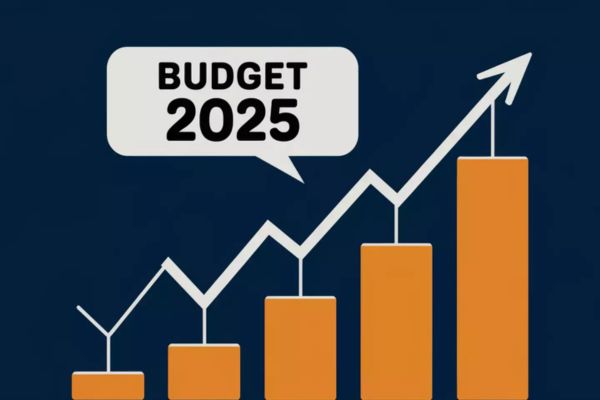The Union Budget 2025 is considered the tipping point of the tech and startup ecosystem in India, supported by a chance to put the country in the forefront of the rest of the world as a technology leader. As this landmark event approaches, the technology industry and its stakeholders expect amazing policies that will supercharge and bring forth innovation and growth back on track, making a competitive mark in the advancing global market.
In the last decade, India’s technology industry has accomplished phenomenal work in GDP contribution and employment generation. It is the startup community that has led this charge, with many innovations addressing either local or global challenges surrounded by an entrepreneurship spirit. At the same time, some systemic issues and expectations remain unsolved with the maturation of the industry. Thus, the Union Budget remains a reality check for the stakeholders.
Perhaps the topmost priority one can expect is that this budget will help facilitate doing business in the development and establishment of startups. Where simplification of the regulatory framework speeding with their approval process to have a timely approval and transparency regarding compliance would only help ease the work environment for new ventures. Many founders would be engaged in battling various bureaucratic hurdles that take their mind away from innovation. Having a simplified framework will help entrepreneurs take riskier decisions to focus in on pressing issues and increase output in the sector as a whole.
Funding issues and the accessibility of capital continue to be stressing points for the technology industry, especially early-stage startups. While the interest from both domestic and international investors grows, the disparity in access to funding has created a rift across geographies and sectors. Other initiatives could be created in the Budget to provide incentives for venture capital funds, angel investors, and alternative investment platforms. There could be provision for tax rebates for investments in startups or a relaxed long-term capital gains tax regime to enable start-ups to attract more investments to enable innovative companies to grow further.
Infrastructure, going digital and physical, is another area where intervention from the government is widely anticipated. Reasonable deployment of 5G, improvement of internet penetration in rural areas, and affordability of access will bridge the digital divide that still remains in the country. When connectivity and infrastructure are stable and common, it is this environment where startups and tech firms flourish. Resources need to be allocated for those initiatives that build digital literacy and promote access to technology for communities that have been underserved so that inclusive growth could happen for both people and small businesses.
In India’s own technological competitive advantage, skill growth and workforce readiness ought to take the front seat. The changing nature of work, given the pace of automation and artificial Intelligence across sectors needing specialized skills, will rise in demand. Adding investment in training programs, partnerships with private players, and a good incentive for skill development programs will ensure one has employees ready to take up any challenge thrown at them. Closing the talent gap will, therefore, be a priority not just for the tech companies but also provide employment opportunities for India’s exponentially growing population of the youth.
Taxation policies are the other fear for the tech industry. Clarity and consistency in tax regulations can provide businesses with the assurance they need to plan long-term. The efforts to provide some meaningful tax relief for startups, coupled with the GST rationalization effort on technology-based services and equipment, could come as a genuine boost for the sector.
In recent years, there has definitely been a surge in getting onto the sustainability and green initiatives plane in the world. For the tech industry, this is practically an opportunity to ensure that innovation goes hand in hand with environmental issues. The budget can give tax breaks or grants or subsidies to green technology/game-changers working on renewables, waste management, among other things. A tax provision for sustainable measures in place that would in turn drive innovations in tandem while fulfilling India’s pledges in the international climate agenda.
Another key expectation is to strengthen the framework around data protection and the cybersecurity infrastructure. As digital adoption accelerates, the risks associated with data breaches and cyber threats are multiplying manifold. Startups and tech firms need a secure environment to operate and earn consumer trust. If funds were allocated for cybersecurity initiatives along with the advent of coherent data protection laws, it would convey the commitment of the government toward a secure digital economy.
To sum up, nurturing collaboration between industry and academia is essential for the development of the sector. Bridging theoretical research with practical implementation can make the progress of high-end technology faster. Offering cash-backed projects for working together with educational institutions, establishing grants for institutes, and setting up incubators in universities could go a long way to help transfer academic awareness into potent technological positioning.
With the Union Budget 2025 round the corner, it still goes largely unrecognized how it shall shape the future of the Indian tech industry. With an approach toward addressing these expectations, the government can not only create a solid foundation for the technology ecosystem but also make the country a global innovation hub. The road ahead is all set with promise, and the right kind of policy interventions could set the Indian tech sector back on course to lead the way in the world towards a better and connected future.
Inputs from- Mr. Kewal Kishan (Founder of Automate Business)


















